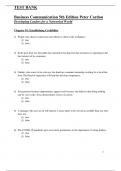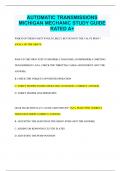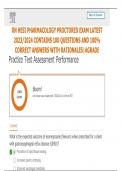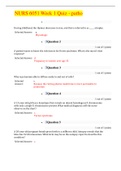Exam (elaborations)
Test Bank Business Communication Developing Leaders for a Networked World 5th Edition Peter Cardon, 9781266678684 (Chapters 1-17).
- Course
- Institution
Test Bank Business Communication Developing Leaders for a Networked World 5th Edition Peter Cardon, 9781266678684 (Chapters 1-17). Business Communication: Developing Leaders for a Networked World 5th Edition (Test Bank). Test Bank For Business Communication 5th Edition Cardon / Peter Cardon 5e Te...
[Show more]






